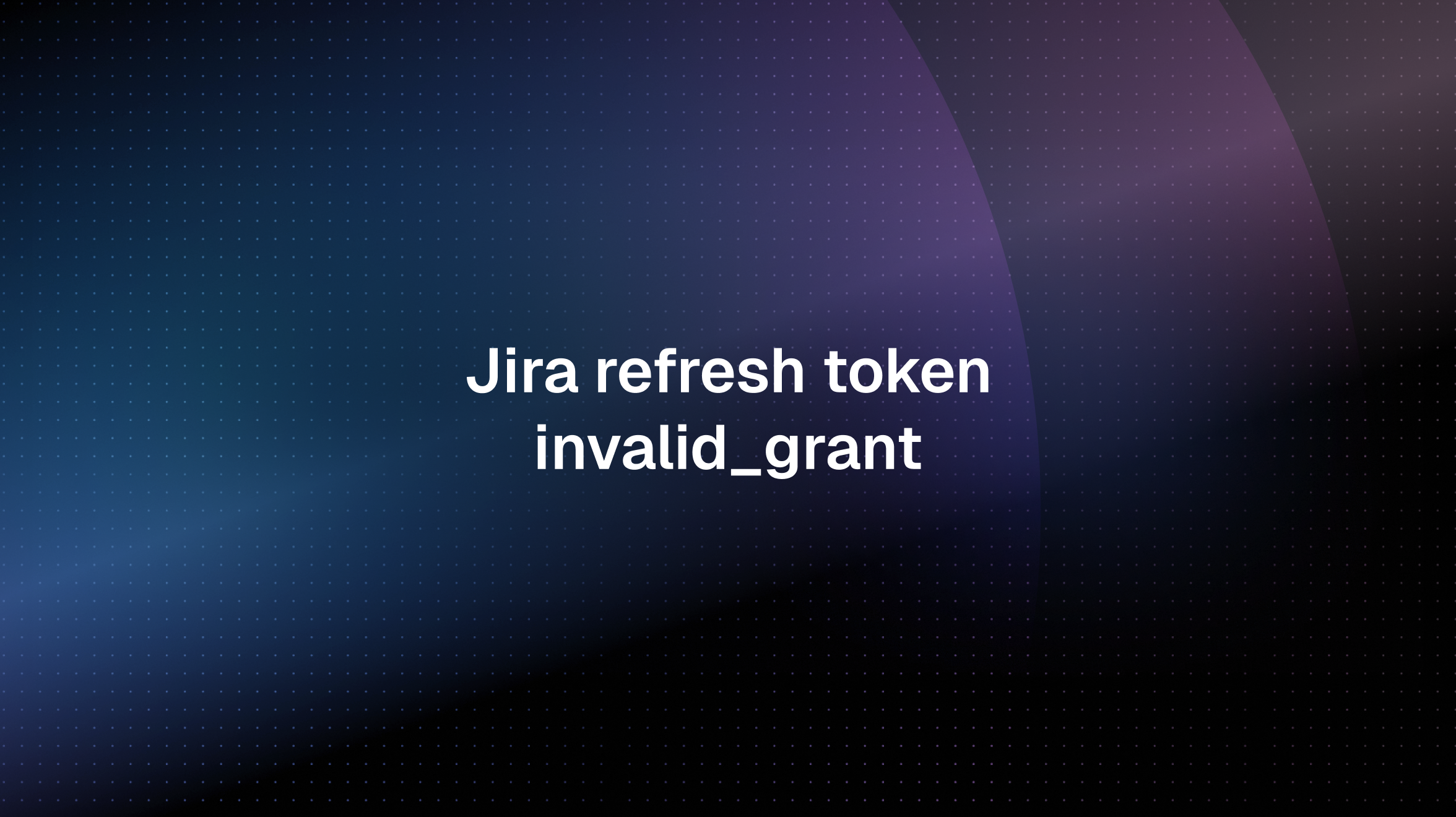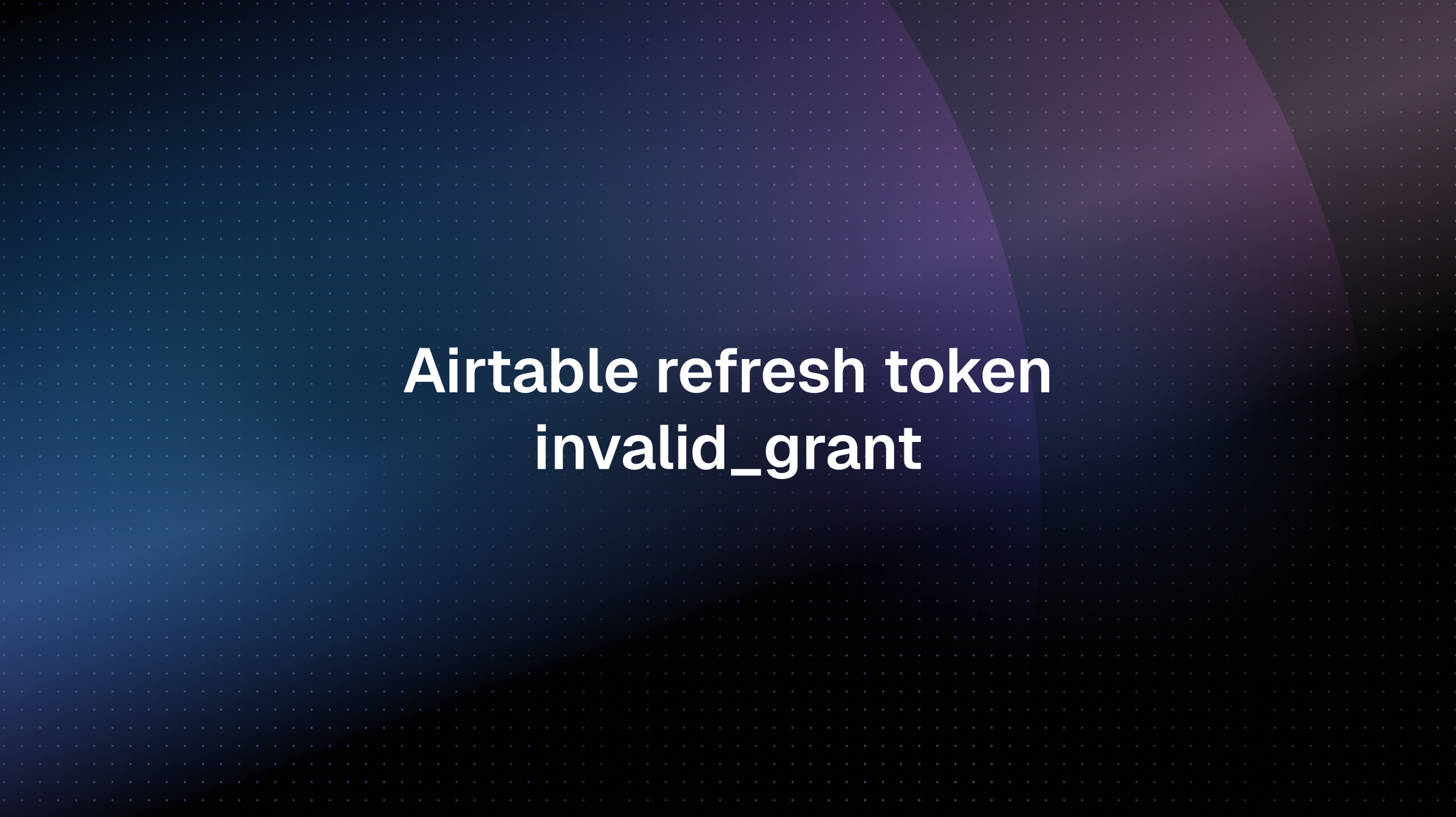Best AI Agent Authentication Platforms to Consider in 2026
Compare the top authentication platforms for AI agents, with detailed pros and cons.
AI agents are quickly becoming core pillars of automation, transforming how businesses handle routine tasks and complex workflows. But most AI agents break the moment they're asked to work with real-world APIs.
The key to building reliable AI agents isn't just smarter prompts or bigger models—it's having the right authentication infrastructure in place from day one.
What is AI Agent Authentication?
To do useful work for your customers, AI agents need to interact with other software systems like calendars, email clients, CRMs, and productivity tools. For this to work, agents must authenticate with these external systems on behalf of your users.
AI agent authentication is the process of letting your users grant your agent secure access to their data in other software platforms. This typically involves running OAuth flows, managing API keys, or handling other authentication methods that each service requires.
For most APIs, this means running an OAuth flow. But some also use API keys, basic auth, or custom authentication methods.
Evaluation Criteria
A good platform for AI agent authentication should cover these aspects:
- Catalog of pre-built authentication: The more APIs a platform covers, the more integrations you can offer in your product.
- White-label: Is the authentication flow white label? Does your product's name show in the auth screen, or the name of the platform?
- Extensibility: How easy is it to add support for a new API that you need? Can you add support yourself, or do you have to wait for the platform to prioritize your request?
- End user guides: Does the platform offer guides for your users to find API keys and other parameters required to connect?
- Vendor lock in: Can you export your user's credentials if you want to move to a different platform?
Best AI Agent Authentication Platforms
Below are 3 AI agent authentication platforms you should consider.
Nango
Nango has pre-built authentication for 500+ APIs across 28 categories.
It automatically refreshes access tokens and provides webhooks when credentials break. You can also combine auth with Nango's tool calls, data syncs, and direct API requests.
Nango is fully open source and powers the integrations of hundreds of fast growing AI agent companies.
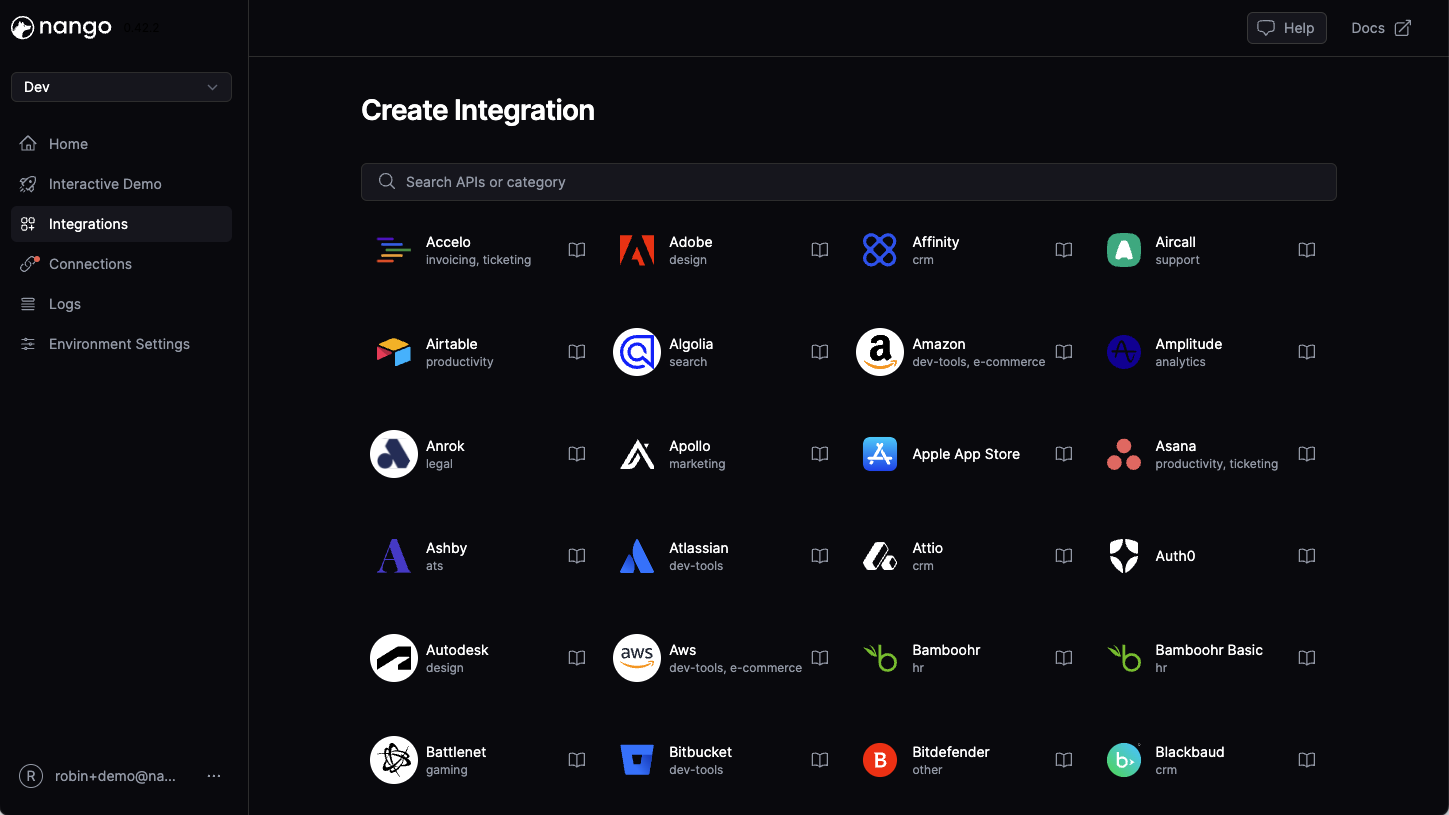
Pros
- Large and fast growing catalog: Nango supports 500+ APIs out of the box and adds at least a dozen APIs every month.
- Add support for new APIs: Because Nango is open source, you can contribute support for new APIs without waiting on Nango's team to prioritize your request.
- Credentials refresh & observability: Credentials are automatically refreshed. Broken credentials trigger webhooks, so your user can reconnect.
- Fully white-label, no vendor lock-in: Auth flows are fully white label and you can always access your user's credentials.
- End-user guides: Nango has detailed step by step guides for end users to find everything they need to connect the API.
Arcade
Arcade is a platform for AI agent tool calling. As part of this, it also offers a solution for API authentication.
Arcade supports nine categories of integrations.
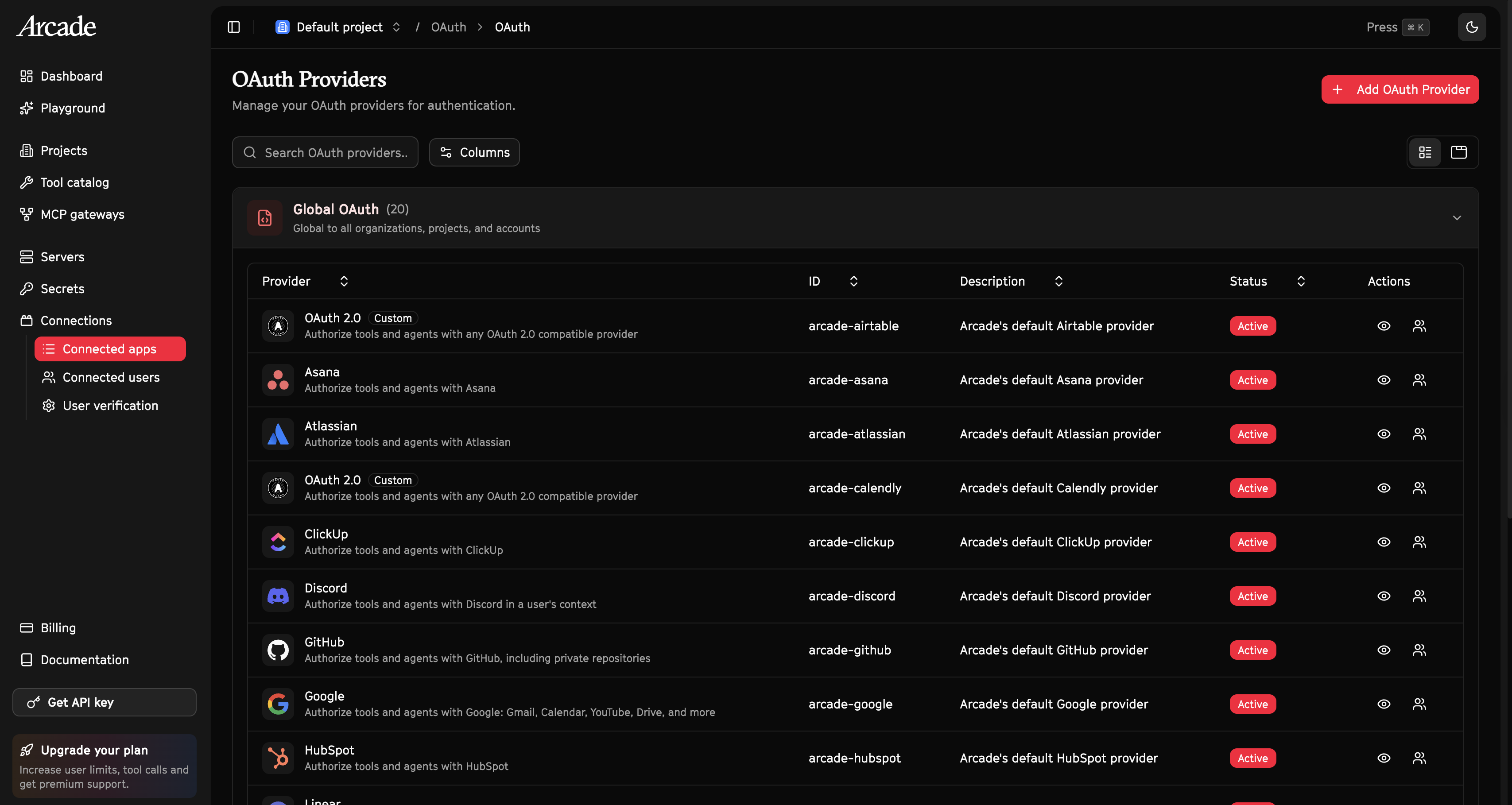
Pros
- Open source: Arcade is open source and can be self-hosted.
- API key & OAuth: Arcade supports both API key and OAuth based authentication
- Auto-checks permissions: When your AI agent calls a tool, Arcade will automatically check if the end-user has granted the correct permissions. If not, it will ask the user to authorize more permissions.
Cons
- Limited API coverage: As of the time of writing, Arcade covers 21 APIs with their auth solution
- No end-user guides: Arcade currently doesn't provide guides for end users to find API keys and similar credentials
- Limited cloud support: The cloud hosted version of Arcade doesn't let you customize the callback URL, which makes a whitelabel auth flow impossible with some APIs
Auth0 for AI Agents
Auth0 for AI agents is a new product from authentication provider Auth0.
It includes an experience for users to grant agents access to their accounts across different APIs.
Pros
- Secure token storage: Auth0 securely stores users access tokens in their token vault
- Automatic token refresh: The user's access token will be automatically refreshed if required
- Integration with AI frameworks: Auth0 has pre-built integrations with popular agent frameworks like Vercel AI SDK and LangGraph
Cons
- Limited API coverage: As of the time of writing, Auth0 for AI agents only covers 26 OAuth APIs
- Only OAuth APIs supported: Auth0 for AI agents currently doesn't support storing API keys and other authentication credentials
- Public beta: As of the time of writing, the service is in public beta. This may introduce uncertainty if the service will fully launch or is just part of an experiment.
Final Thoughts
AI agent authentication is the foundation that determines whether your agent can reliably serve your users. The right authentication platform will scale with your product, maintain security standards, and provide the flexibility you need to build the integrations your customers want.
Each platform has its strengths depending on your specific needs. Nango offers the most comprehensive API coverage and flexibility, Arcade provides specialized AI agent tool calling capabilities, and Auth0 brings an established player to the AI agent space.
We hope this article has helped you make an informed decision about which authentication solution to use for your AI agents.
After authentication, choosing the right agent platform is the next step—compare options in our best AI agent integration platforms.


